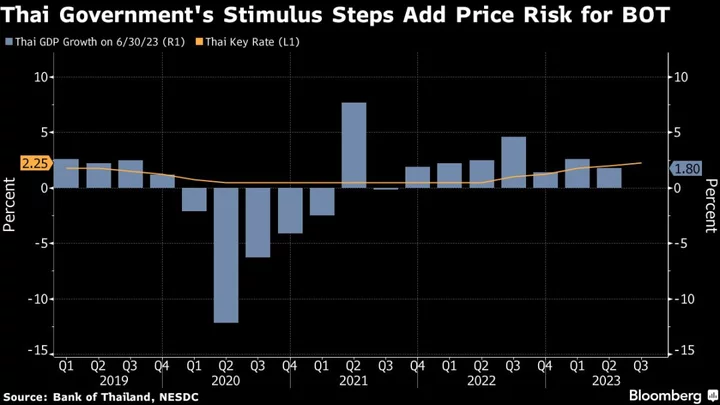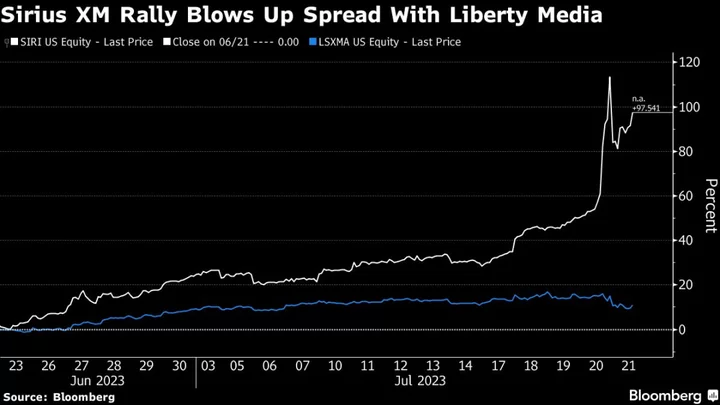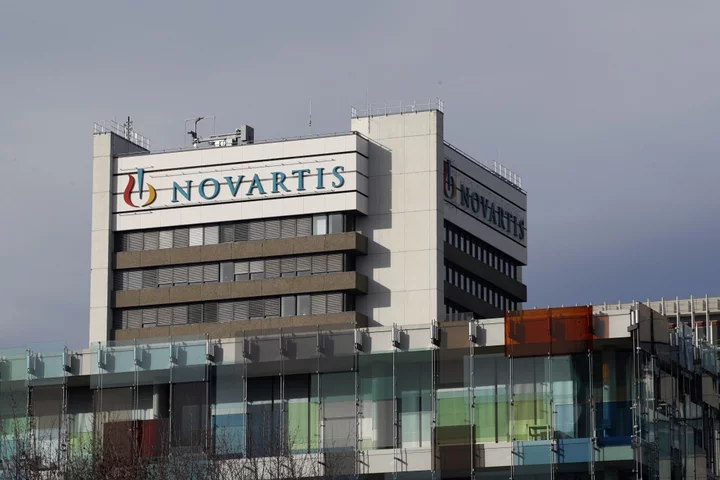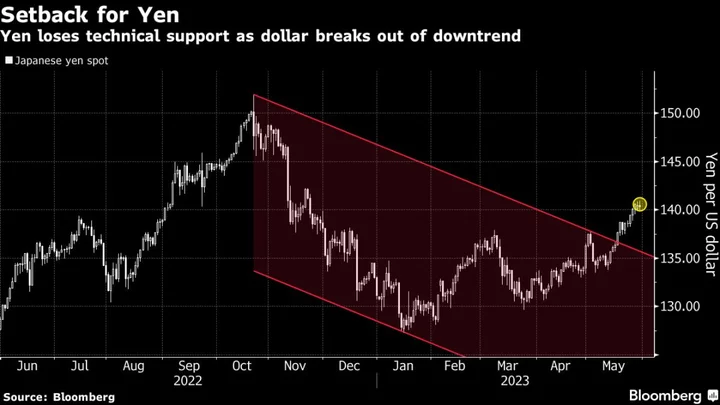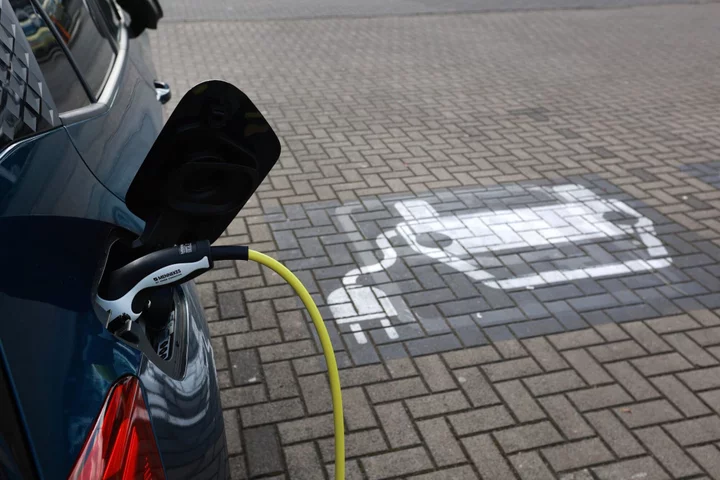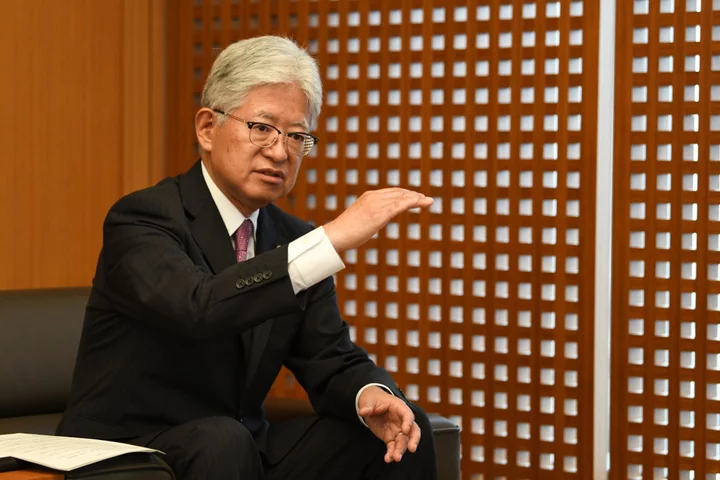Thailand’s central bank raised its benchmark interest rate to the highest level in 10 years, as it moved preemptively to check inflationary pressures from the government’s proposed economic stimulus.
The Bank of Thailand’s Monetary Policy Committee voted unanimously to increase the one-day repurchase rate by a quarter-point to 2.50% on Wednesday, as predicted by 10 of 21 economists in a Bloomberg survey. The rest had expected no change.
Interest rates were last seen at this level in October 2013.
While price gains are running below the BOT’s 1%-3% target, policymakers are using the space to build defenses against future inflation stoked by loose fiscal policy. Prime Minister Srettha Thavisin has announced measures ranging from energy subsidy to cash handouts to spur economic growth.
The decision comes as the Thai baht has weakened more than 4% this month, making it the worst-performer among 12 Asian currencies tracked by Bloomberg. The nation’s sovereign bonds have also underperformed, amid concerns on additional government borrowing to finance the new government’s stimulus measures.
The centerpiece of Srettha’s economic stimulus is a 560-billion baht ($15.3 billion) spending to provide 10,000 baht each to an estimated 55 million individuals. The money will be distributed through a digital wallet and must be used within six months, with the program expected to be rolled out in the first quarter of 2024.
Along with fresh energy subsidies, three-year debt suspension for farmers, visa waivers for Chinese tourists and plans to raise the minimum wage, the new government sees economic growth hitting at least 5% annually starting next year. The government claimed these steps are necessary to cope with challenges ranging from slowing global demand, geopolitical tensions, high household debt and El Nino weather.
--With assistance from Tomoko Sato, Pathom Sangwongwanich and Cecilia Yap.

